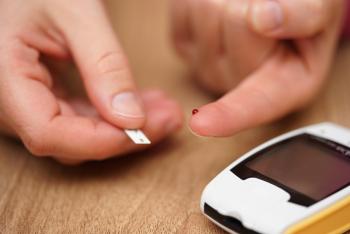Kidney stones are a common but preventable condition that can cause severe pain as they pass through...
Read More
Your kidneys perform many essential functions, but their main job is filtering your blood and getting rid of toxins and excess water in your body. If your kidneys aren’t working correctly, extra fluids and waste products build up in your blood, leading to serious health problems like heart disease or stroke.
“Chronic kidney disease (CKD) is a gradual loss of kidney function,” said Pankti Tamboli, D.O., a Primary Care Physician at Inspira Medical Group. “It can ultimately lead to kidney failure, which requires dialysis or a kidney transplant.” Understanding CKD and recognizing its symptoms involves understanding the misconceptions about this condition. Here are four common myths about CKD and its treatment.
False. CKD is a common condition that affects approximately 37 million adults in the United States. The prevalence of CKD increases with age and is also more common in people with certain risk factors like diabetes, hypertension and a family history of kidney disease. Lifestyle factors, including smoking, obesity, a high-sodium diet and the long-term use of nonsteroidal anti-inflammatory drugs, can also contribute to the development of CKD. By 2030, the Centers for Disease Control and Prevention (CDC) expects kidney disease to affect nearly 17 percent of the population.
False. Approximately 40 percent of people with CKD don’t realize they have reduced kidney function. “In its early stages, CKD doesn’t cause symptoms,” said Dr. Tamboli. “Since symptoms aren’t always present, the only way to definitively determine whether you have kidney disease is through blood and urine testing.”
The following symptoms may occur as the disease progresses:
False. There are many possible causes of CKD. The most common of these are uncontrolled, high blood pressure and diabetes. Both of these conditions can damage the blood vessels in the kidneys, affecting how they function. “CKD can also be caused by glomerulonephritis, a group of diseases that causes inflammation and damage to the kidneys’ filters,” said Dr. Tamboli. “Other conditions, such as genetic disorders, kidney inflammation, urine obstruction and systemic diseases, can also cause harm to your kidneys, leading to CKD.”
False. There is no cure for CKD, but it is a treatable condition. If caught in its early stages, lifestyle changes and medication can help slow the progression. Improving your diet, limiting your sodium intake, exercising regularly and stopping smoking can all help you manage CKD. Early diagnosis is critical for optimal symptom management.
Inspira offers comprehensive primary care services throughout the South Jersey region. Find a Primary care provider here.

Kidney stones are a common but preventable condition that can cause severe pain as they pass through...
Read More
Discover how high blood sugar impacts your body, from dental complications to kidney damage, and...
Read More
Inspira Health strives to make health care as simple and effective as possible. That is why Inspira...
Read More
The material set forth in this site in no way seeks to diagnose or treat illness or to serve as a substitute for professional medical care. Please speak with your health care provider if you have a health concern or if you are considering adopting any exercise program or dietary guidelines. For permission to reprint any portion of this website or to be removed from a notification list, please contact us at (856) 537-6772